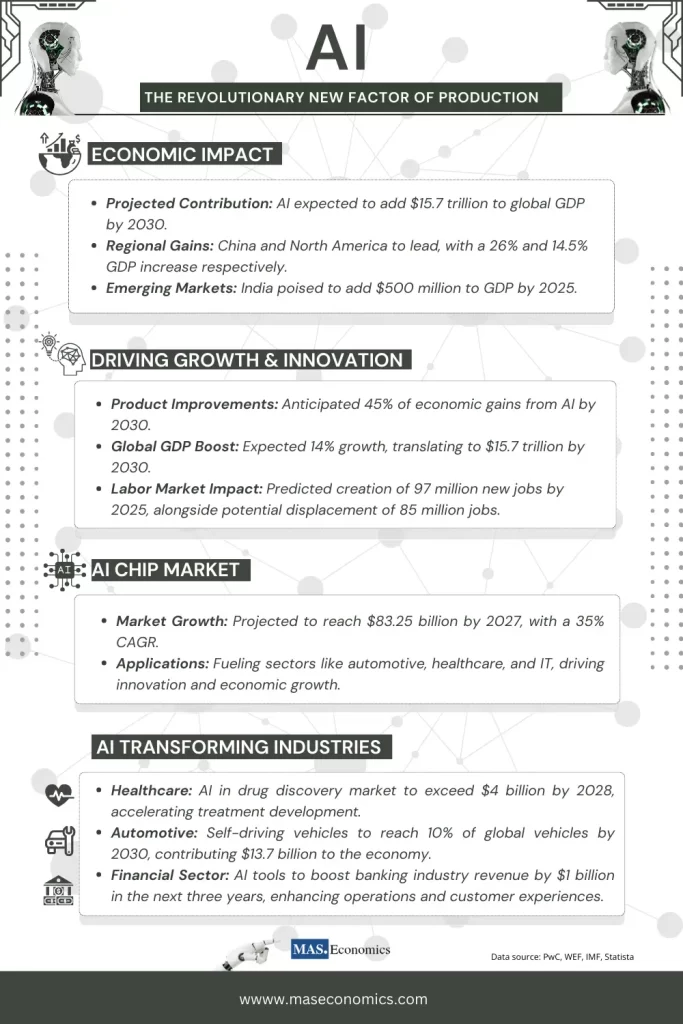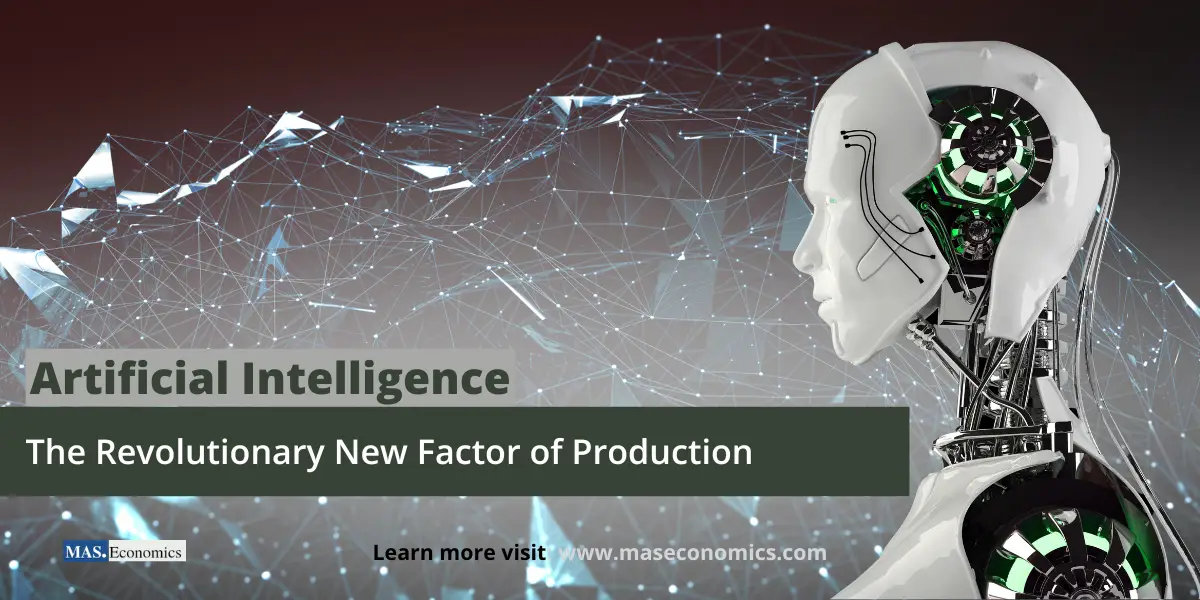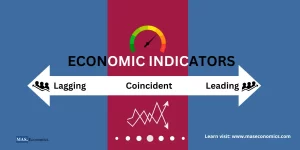Artificial Intelligence (AI) rapidly emerges as a transformative force, reshaping industries and economies globally. This disruptive technology is automating tasks, augmenting human capabilities, and unveiling new frontiers of innovation and productivity. As AI continues to permeate various sectors, it is increasingly being recognized as a critical and revolutionary new factor of production, poised to drive economic growth and redefine the contours of the global outlook.
The traditional factors of production – land, labor, and capital – have historically been the driving forces behind economic growth. Land, encompassing natural resources, has provided the raw materials for production; labor, human effort, and skills; and capital, the necessary tools, machinery, and infrastructure. However, the advent of AI challenges this long-standing paradigm, introducing a new factor with unique capabilities and potential.

Economic Impact of AI as a Factor of Production
According to estimates by PricewaterhouseCoopers (PwC), AI is expected to contribute a staggering $15.7 trillion to the global economy by 2030, surpassing the current combined output of China and India. This economic significance is a testament to AI’s transformative power as a factor of production.
Unlike traditional factors, AI is not a finite resource; it can be continuously improved, replicated, and scaled, transcending geographical and physical limitations. Moreover, AI’s ability to learn, adapt, and evolve sets it apart from conventional tools and machinery, blurring the lines between a productive resource and an active participant in the production process.
AI Driving Economic Growth and Innovation
Beyond its direct contributions to GDP, AI also drives economic growth and fosters innovation through diverse channels. It is estimated that by 2030, a staggering 45% of the economic gains attributed to AI will stem from product improvements driven by this technology. AI’s ability to analyze vast amounts of data, identify patterns, and generate insights enables companies to develop new products, optimize existing offerings, and enhance customer experiences.
AI’s impact on the labor market is an ongoing debate, with experts weighing the potential for job creation against the risk of job displacement. The World Economic Forum (WEF) has predicted that by 2025, AI could create 97 million new jobs across 26 countries. However, it could also potentially displace around 85 million jobs, which makes it crucial to take proactive measures to reskill and upskill workers. This will ensure that workers are equipped to adapt to changing job demands.
Similarly, Accenture estimates that AI-based technologies may increase labor productivity by up to 40% across 16 industries by 2035. This underscores AI’s potential to augment human capabilities, streamline processes, and drive efficiency, ultimately contributing to economic growth and competitiveness.
AI’s unique capabilities as a factor of production are also evident in its ability to foster entirely new industries and production methods. For example, the field of generative AI, which includes technologies like ChatGPT, has opened up new avenues for content creation, design, and problem-solving, challenging traditional models of production and creativity. Similarly, the integration of AI in manufacturing processes has enabled the development of highly customized and personalized products, revolutionizing how goods are produced and consumed.
The Burgeoning AI Chip Market
The burgeoning AI chip market indicates AI’s growing economic significance. According to Insight Partners, the global AI chip market is set to reach $83.25 billion by 2027, growing at an impressive 35% compound annual growth rate (CAGR). The increasing demand for AI applications in the automotive, healthcare, and information technology sectors fuels this market. Developing specialized AI chips is essential for powering advanced AI systems, enabling faster computations, and optimizing performance, thereby driving innovation and economic growth.
AI Transforming Industries
AI’s transformative impact is evident across various industries, reshaping business models, driving innovation, and creating new market opportunities. The healthcare sector, for instance, is witnessing a revolution driven by AI. The AI market for drug discovery is predicted to exceed $4 billion by 2028, with a compound annual growth rate (CAGR) of 40.2%, as per MarketsAndMarkets. AI has the potential to speed up drug discovery by analyzing enormous amounts of data, identifying patterns, and producing insights. This could result in more effective treatments and better patient outcomes.
The automotive industry is also undergoing a profound transformation, with AI paving the way for self-driving vehicles. Statista estimates that by 2030, one in ten cars globally will be self-driving, contributing $13.7 billion to the economy. This shift toward autonomous transportation has the potential to revolutionize mobility, enhance safety, and unlock new economic opportunities.
The financial sector is not immune to AI’s disruptive influence. Accenture predicts AI tools will enhance banking industry revenue by $1 billion within three years. AI’s ability to streamline operations, improve decision-making, and enhance customer experiences is poised to drive growth and innovation in the financial services industry.
Conclusion
The rise of AI as a factor of production is rapidly reshaping the global economic outlook. With its capacity to augment human capabilities, drive innovation, and unlock new frontiers of productivity, AI is poised to contribute significantly to economic growth and transformation across industries.
Adopting AI’s potential while addressing challenges like job displacement and ethics is crucial for inclusive growth. With proactive measures and a supportive environment, nations and industries can shape a prosperous, equitable, and sustainable future, driving unprecedented global growth and innovation.
Thanks for reading! If you found this insightful, share the knowledge with friends and spread it on social media!
Happy learning with MASEconomics




